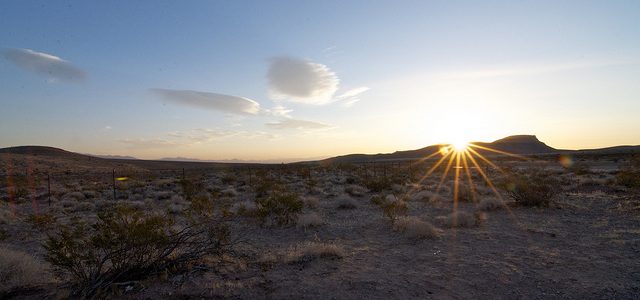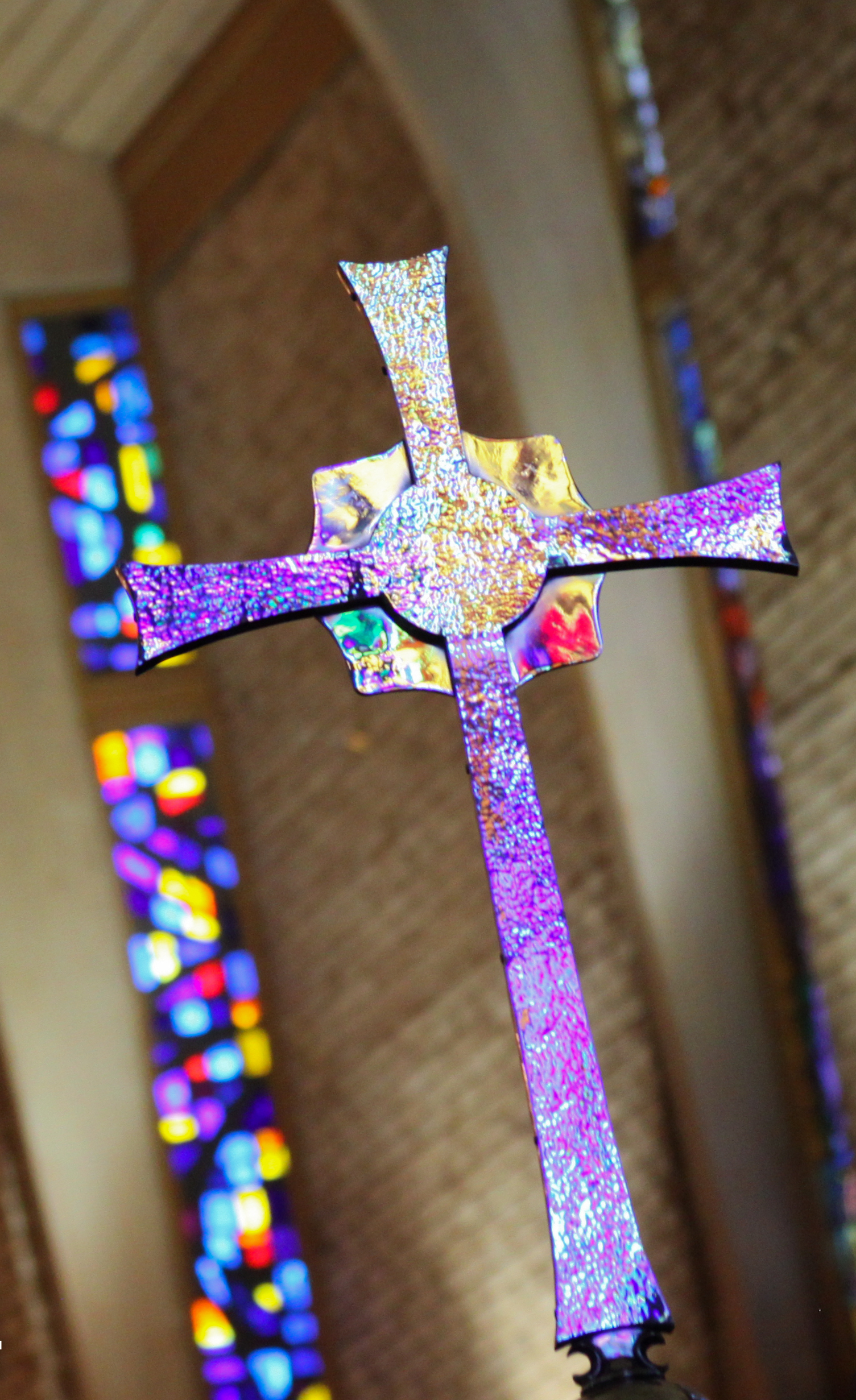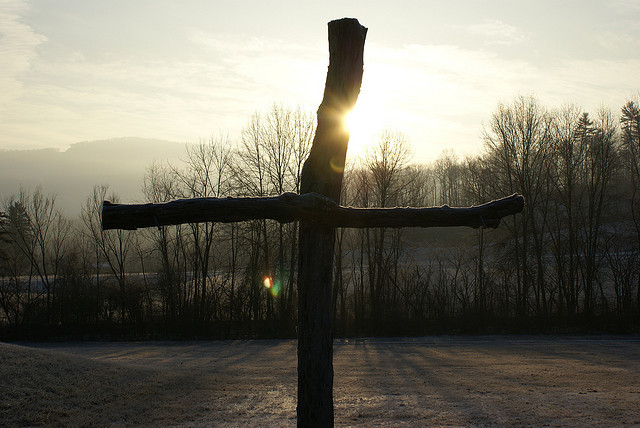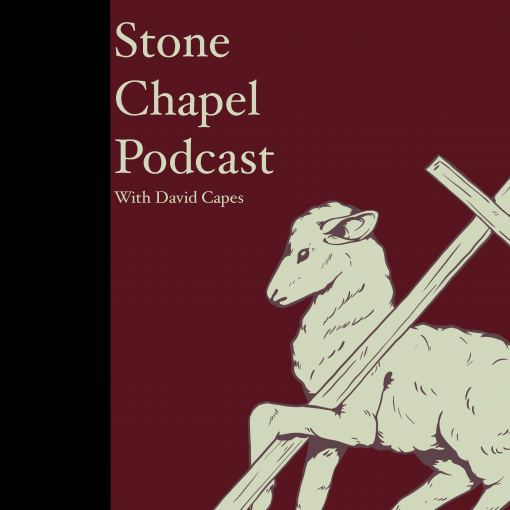[TLDR: Open theism is appealing, but, like Reformed theology today, it insists on looking at things from a human rather than divine perspective of history.]
Ages ago, so long ago, in fact, that I do not remember the time or the day or even the year, I realized that I could not hold to a strict belief that God had ordained, structured, determined, and ordered, every final detail of history. Whether one calls it Calvinism, neo-Calvinism, or Fred, over my life I have been in many discussions with Reformed friends and family asserting that God is in “complete control” of not just our lives, but all of history. Only Adam and Eve, I was once told, have true free will. I have since read many Reformed theologians argue that their decision to disobey God was also determined by God.
Such a view is incongruous with the full view of Scripture and also presents a host of ethical problems, not the least being that God is directly responsible for all evil. (God, as creator of all, is of course responsible for creating the opportunity for evil by creating beings with free will, angelic and human. The choice to do evil, however, remain with the free agents.) But, as I say, at some point, I realized that I could not hold to such a theology.
This was not because I had had some life experience that I could no longer reconcile with such a theology, putting my experience before “truth,” but because I simply read too much Scripture. The ardent predestinarian view only stands through the willful ignoring of large swaths of the biblical text, not the least (but the most ignored) being the narrative portions of the Old Testament. The Bible simply did not support such a neat and tidy reading of history. The biblical account looks a lot like real life, with its ups and downs, tragedy and joys, and, occasionally, the providential interruptions of the Divine.
In the Bible God is our creator and redeemer and our partner. Yet God is not minutely conducting every note, phrase, and rest in the music of life. A classic example of this tension, of God’s design and intervention in human history and respecting human choice, is the way in which Rebekah and Jacob use wicked means of trickery and deceit to achieve what God had promised. On the one hand, God had promised Rebekah when she was in painful pregnancy that
“Two nations are in your womb,
Gen. 25:23
and two peoples born of you shall be divided;
the one shall be stronger than the other,
the elder shall serve the younger.”
God provides no explanation of how this will come about, that the younger should rule over the elder, but Rebekah clearly kept this promise close to her heart and showed favoritism to Jacob over Esau. Sadly, Isaac showed favor towards Esau over Jacob. Each boy shows their own initiative and interest as Jacob gains the birthright from Esau in a trade (“thus Esau despised his birthright” Gen. 25:34), but the final blessing of the father was stolen. Rebekah instructs and facilitates Jacob in his deceit of his father, pretending to be his brother, to gain the blessing.
How do we know that this is not an example of how God would have ordained matters? Being narrative it is not explicit, yet first of all we must take into account that Jacob (and Rebekah) lied and deceived Isaac. I don’t think it is necessary to expound upon the fact that this is a sin. Then we have the consequences. Rebekah, who loved Jacob so much, apparently never sees him again since he is forced to flee after cheating Esau of his last benefit as Isaac’s son. And for Jacob’s part, his sin comes back to him in multiple ways. His uncle Laban knows of his usurpation of his brother and makes him marry his eldest daughter Leah before the one Jacob loved, Rachel, saying, “This is not done in our country—giving the younger before the firstborn” (Gen. 29:26). Most poignantly, Jacob’s sons deceive him as he deceived his father. Where he had put on goat skins and his brother’s clothes so that his blind father Isaac thought him Esau, Jacob’s beloved Joseph’s clothes were sprinkled with the blood of a goat to demonstrate that his most favored son was dead. Would a good and just God ordain sin and deception, the fruit of which was further sin and deception?
The biblical topography is much more varied than Reformed theology, at least as articulated in the US today, would have us believe. Sometimes God intervenes in history directly and decisively, as when he called Abraham or used Joseph’s being sold into slavery in Egypt and of course in the Incarnation. But at other times, the majority of time, in fact, we are left to follow God’s direction or not.
I was expressing these views recently to an old and wonderful and wise friend who listened thoughtfully. He then asked, “Are you an open theist?” I admitted that I had not read deeply into the theology but felt sympathy towards it, given what I knew. In the past two months I have read much more, from those who espouse open theism and those who reject it, and have come to the determination that I am not an open theist, although I agree with much of what I read. [mfn]Greg Boyd offers a very concise “Outline and Defense of the Open View” on his site.[/mfn]
For those new to this debate, it focuses upon the sovereignty of God, although it is often not framed in such terms. It is also a debate almost exclusively within conservative, Evangelical Christianity. [mfn]It came to a head in the early 2000s [the link is from an anti-OT writer], but I won’t go into that here.[/mfn] Open theists are addressing the very problem with Reformed theology that I have highlighted, the idea that God has ordained every moment and action of all creation. The “open” language, however, comes from their view of God’s knowledge of history. Following from the assertion that God has created his creatures free will, they assert that, while God knows some things that he has pre-determined, others remain undecided because we, the creatures with the will to make the decisions, have not yet determined our choices.
Decisions not yet made do not exist anywhere to be known even by God. They are potential— yet to be realized but not yet actual. God can predict a great deal of what we will choose to do, but not all of it, because some of it remains hidden in the mystery of human freedom. . . .
“From Augustine to Arminius: A Pilgrimage in Theology,” in The Grace of God, the Will of Man: A Case for Arminianism, ed. Clark H. Pinnock [Grand Rapids, Mich.: Zondervan, 1989; Minneapolis: Bethany, 1995], pp. 25-26.
While I whole-heartedly agree with the biblical view that humanity was created with agency, the ability to make our own choices to love and obey God or to not. Yet I find the OT extension of that to mean that God does not know all of history a non sequitur, the one does not have to follow from the other.
John Piper has been a harsh critic of open theism as even the title of his collection of essays from various scholars’s attests: Beyond the Bounds Open Theism and the Undermining of Biblical Christianity. He and his colleagues see OT has nothing less than the corruption of Christianity. Piper quotes one author as calling it “a demonic temptation!” Let’s hear it for old-school invective! This is Zwinglian stuff! But in his forward to that volume, Piper offers a good, one sentence summary of the situation.
The heart of open theism is the conviction that humans and angels can be morally responsible only if they have ultimate self-determination—and have it to the degree that their self-determination rules out God’s ability to render or see any of their future free acts as certain.”
Piper, John, Justin Taylor & Paul Kjoss Helseth. 2007. Beyond the Bounds Open Theism and the Undermining of Biblical Christianity. Wheaton, IL: Crossway Books.
The issue for me is that I agree with the first clause, but not the second. I agree with the open theists view that we must have freedom of determination, but I do not agree that God can not know with certainty what will happen. On the other hand, I disagree with the Calvinists that God’s complete knowledge of all necessitates that God must determined all of history. I think it is all a matter of perspective and that neither camp seems to be looking at it from a divine elevation. Rather, they insist of viewing history from a 6-foot, human perspective.
Simply put, God is outside of time-space. That is to say, since God is eternal and preexisted, in fact created, time then God is not existing within time. This does not preclude God from entering into our world and history, as Scripture attests, but God is not bound to it in the way that we are. We cannot jump forward or back in time, we cannot know our future and only imperfectly know our past. God is not tethered in this way. Thus God allows humanity to make the decisions that we will and also knows what those decisions will be, not because God has ordained them all (reserving some), but because all of human history is complete from the divine perspective.
This, it seems to me, resolves the two positions. Now, I am sure that someone (has anyone read this whole thing?!) will tell me that my thinking is clearly ________ theology. I will be happy to learn that and explore to see if my thoughts do indeed line up with another school of thought; I do not assume that I am original in my ideas and conception. In the meantime, I will continue to operate without labels other than, perhaps, saying that I ascribe to a “biblical theology,” one that is not systematic but is representative of life as we live it.






2 thoughts on “The Divine Perspective: Open Theism and Human Will”
There has been a lot of great discussion about this with Tim Sieger over on the Facebook post.
This is good portion of it:
Tim Seiger
Hi Dean Brady. Hope you are warm and well! I enjoyed reading about your crash course in Open Theism. I have been exploring it for a number of years and am at a point where I think I am comfortable calling myself an Open Theist. However, I am also at a point where my theology is less dogmatic than it once was. There is always more to learn! One of the difficulties I have with your conclusion in regard to Open Theism is that it appears to be based heavily on the claim that God is outside of time. The difficulty is not with the idea of the timelessness of God so much as the claim that timelessness has explanatory power in regard to what God does or does not know or can or cannot know. In other words, if it is true that God is outside of time, on what basis can we, time-bound beings, then claim we know what that would mean or entail in regard to what God can know or not know in regard to what we experience as the future? It seems to me that the most we can say is that God is outside of time but beyond that we have no way to know or understand exactly what that would mean or entail. Consequently, I am not sure how divine timelessness could be a meaningful defeater for the claim that God does not know the future choices that free people have yet to make.
Christian Brady
Dear Tim, it is always good to hear from you! You are correct, my entire position is based upon the assumption (as I hope I make clear) that God, being outside of our time and all of human experience being “history” to God, therefore knows what choices have been made because they are, in effect, “past” for God. I take your criticism, that we humans cannot really know “what God can know or not know in regard to what we experience as the future,” but if we maintain that position then you must also agree that open theists are at an equal disadvantage.
Regardless of reference to time/history, all we know about God is through revelation and that is how I find myself in this position. (Much like you, I am not very dogmatic, although I do not believe I ever was, at least not from a perspective of systematic theology.) Both the open theist’s and Reformed can marshal verses to their position. That is why I go back to asking what does it mean that God is outside of time? It seems, to me at least, then a reasonable conclusion that our history is just that, history to God. But as I say, it seems reasonable to me, it may not to you and that does not bother me in the least.
Tim Seiger
Agreed that if God is outside of time and we cannot know what that entails then the Open Theist is equally disadvantaged. I would also like to know where it is in scripture that you see timelessness as a divine attribute. There is a body of literature out there that is arguing that God is not timeless and that scripture doesn’t make that claim about God. Roger Olson, for example, makes that claim here https://www.patheos.com/…/an-example-of-unwarranted…/. Not trying to be contentious or even convince you otherwise, just curious about how you are processing it especially as a biblical scholar 🙂
Christian Brady
Tim my quick response, without reading the blog or frankly having read anyone else speculating on the matter, is the simple fact that God existed before time. That seems the strongest if not clear assumption of Genesis 1 and so I would suggest that God is outside of time since God created time.
Christian Brady Tim my quick response, without reading the blog or frankly having read anyone else speculating on the matter, is the simple fact that God existed before time. That seems the strongest if not clear assumption of Genesis 1 and so I would suggest that God is outside of time since God created time.
Quickly looking at Olson’s piece, I see a lot of unwarranted speculation there as well. 😉 For example, I respect Wolterstorff and Ward, but while they have “As Christian philosophers Nicholas Wolterstorff and Keith Ward (among others) have strenuously pointed out, a “timeless being” cannot interact with temporal beings.” That is merely an assertion, it does not have to logically follow, especially if one believes in an omnipotent God.
As for his assertion about all of these “timelessness of God” being a Hellenistic import, I offered Genesis and then I would add all sorts of Psalms and Prophets where God knows all about a human’s future. If one does not assume predestination but simply, as stated, knowledge, then that knowledge could indeed come from being outside of that time.
Still, more reading and learning to do, no doubt! I will track down the Wolterstorff and Ward references.
Christian Brady
And I would add this to the logical difficulties. Olson asks, “How can a non-temporal being ‘enter into time’ while also remaining outside of time?” I would ask of him, how can one be “fully human and fully divine”? How can one who is eternal, omnipotent, omniscient, etc. become a limited creature?
To your earlier point, so much of this is unknowable. I don’t know how it would work! I try and set the biblical texts side by side and then consider how the seemingly irreconcilable might be true at the same time. If God can do all those other things, if Jesus was the full incarnation of God then…well presumably the other stuff is easy and our ability to reason as God would has its limits.
Tim Seiger
Christian I hesitated to post the Olson blog because of the title and the overly confident assertions but two things contributed to the decision to post it. 1. Despite the over confident assertions I thought the blog post laid out the issues pretty well. 2. In the past I have found Olson to be a fairly careful scholar and as a result I gave him the benefit of the doubt in regard to the presence of more support for the claims made in the blog. However, it is certainly open to debate as to whether that support is compelling. Also your point about the Incarnation is well taken!
Christian Brady
Tim I greatly appreciated your sharing Olson‘s post and I spent the morning reading from some of the people he recommended such as Wolterstorff. It is true he doesn’t help his argument by trying to critique unwarranted assumptions and then putting forward a bunch of his own. That being said, I take the critiques seriously although this early into it I am not seeing strong arguments against my view. The “I can’t understand how” argument against something rarely holds up in discussions about what God can or cannot accomplish. And that is the problem and why I have avoided philosophy and theology for most of my career. 🙂
Tim Seiger
Philosophy and Theology…these are a few of my favorite things! “I can’t understand how” doesn’t hold up because it is not an argument at all :). I am not going to press further though I would love to follow your progress in exploring the issues especially from the perspective of the scriptures and what they would either demand or simply allow for in regard to the issues surrounding Open Theism and divine timelessness. I will watch for your blog entries 🙂 .
Christian Brady
Tim It is an interesting journey. 😁